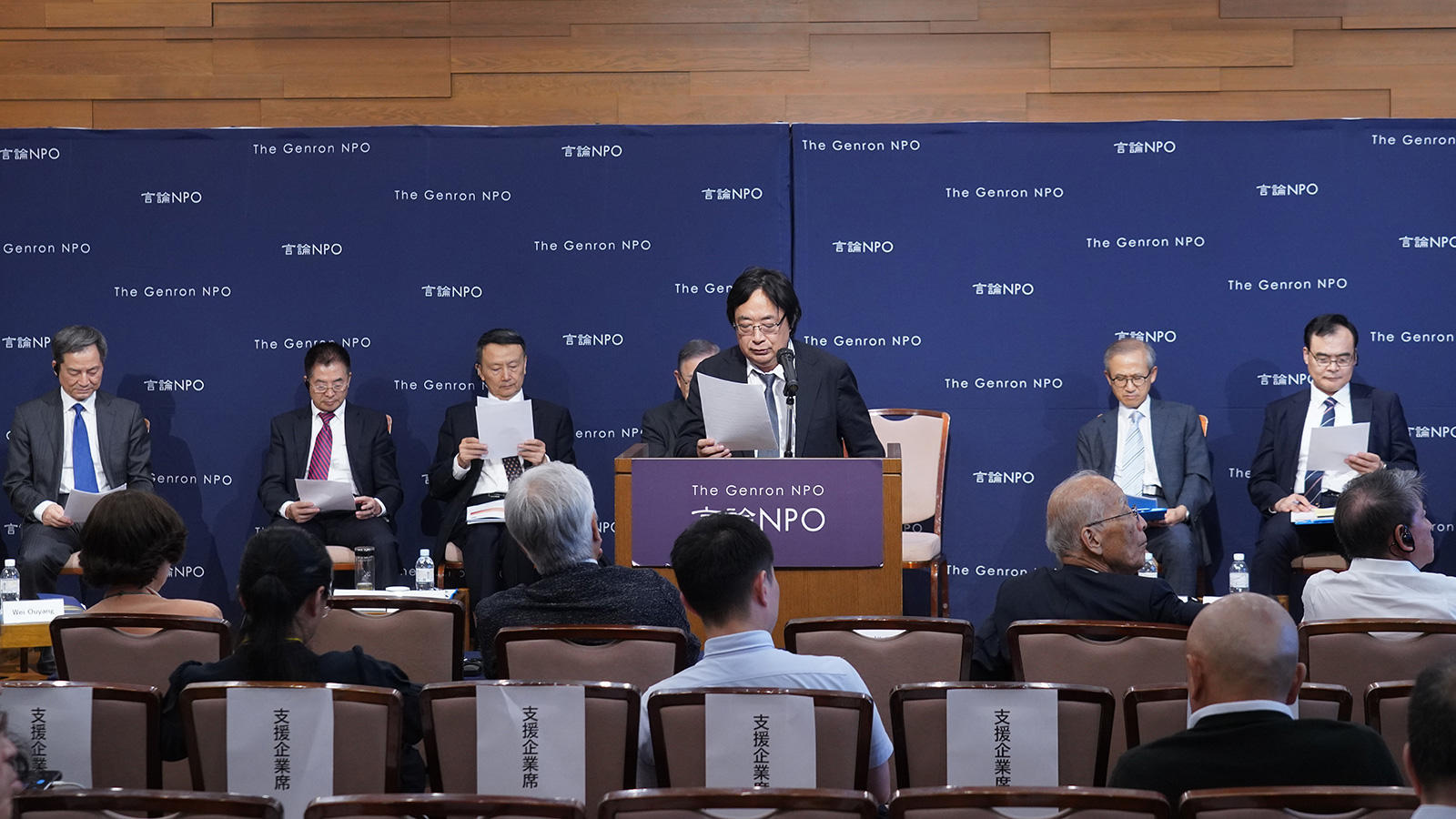The Fifth Asia Peace Conference held on September 3 and 4, 2024 was attended by fifteen foreign policy and security experts and former government officials from four countries: China, Japan, the Republic of Korea, and the United States of America. Participants analyzed current threats to security in Northeast Asia, and engaged in a frank and in-depth dialogue about what efforts are needed to achieve peace in the region. The overall theme for this year's conference was "A Resolution to Achieve Peace."
Before the conference, The Genron NPO and its partners conducted a survey of 161 experts from the four participating countries. The survey found that many experts are concerned that Northeast Asia could now be in a "New Cold War," and that the confrontational structure in place in the region has become a risk to peace. On the Korean Peninsula, North Korea continues to develop its nuclear capabilities and to repeatedly provoke its neighbors, while in Ukraine, Russia's invasion remains in violation of international law. In addition, these two countries have signed a military treaty. Meanwhile, for China, the United States, and their respective allies, military expansion and conflict have become the status quo in Northeast Asia and surrounding regions. This year's conference revolved around how to deal with these challenges.
Many of the most volatile hotspots in the world can be found in Northeast Asia and the surrounding area. Tensions are high on the Korean Peninsula, across the Taiwan Strait, over the Senkaku/Diaoyu Islands, and even in the nearby South China Sea, and those tensions could all potentially lead to clashes. However, there still exists no region-specific forum for the four countries to prevent or resolve incidents in Northeast Asia. In addition, the countries of the region have yet to agree on a mutual code of conduct. Tensions between the major powers are rising, and the prospects for peace remain uncertain.
One question that arose during the conference was whether deterrence itself has become the ultimate goal of the region. Deterrence is important but it cannot be the only plan in place, as it alone cannot prevent further military expansion and conflict. Deterrence will be ineffective if it is used as the sole means of conflict resolution or achieving the stability the region seeks.
What exactly does the region need now? What we concluded during our discussions is that there needs to be an effort to manage the risk of conflict, and an effort to work together to resolve shared issues. This is one reason why so much of the discussion at this year's conference was dedicated to the Korean Peninsula, which was judged as being the area with the highest risk of conflict.
This Statement covers the primary issues discussed during the conference as well as proposals that were made. Here we present another path toward peace for this contentious region, a vision for the future created by representatives from four countries.
Naturally, each expert has their own perspective and understanding of the issues faced, but at times like this ? a period of deepening conflict and escalating risk ?we must return to the fundamental principles of peace.
Four years ago, we launched a conference unlike any other with representatives from China, Japan, the Republic of Korea, and the United States of America. We believed that it was necessary to create a forum for honest discussion aimed at building a better future for the region, even if it remained for the time in the private sector. During this year's conference, we asked what these four countries should be doing.
The threat of nuclear weaponry and its use is increasing in the region, which means the role that each of these countries can play, and the importance of those roles, is greater than ever before.
These four countries could have a decisive impact on the region's future if they can work together to take the lead in resolving the issues faced.
The time is ripe for us to work towards achieving the goal of peace, and some of the experts agree with that assessment; our survey found that the experts from China believe the fifth biggest threat to peace in the region is "The lack of an intergovernmental dialogue framework to discuss security issues across Northeast Asia."
We hope that this four-party conference will develop into a mechanism that includes representatives from governments and organizations from around the region, all gathered together to build a better future.
We believe that the Asia Peace Conference and the experts from the four countries involved can contribute to building a foundation for a trust-building mechanism for Asia. This is the objective of our Resolution to Achieve Peace, and we will continue to work towards that goal and fulfill our responsibilities to make that resolution a reality.
Chair
Asia Peace Conference
Yasushi Kudo

Post a comment